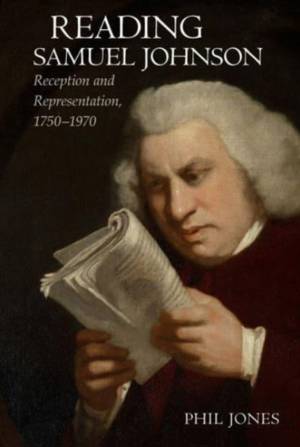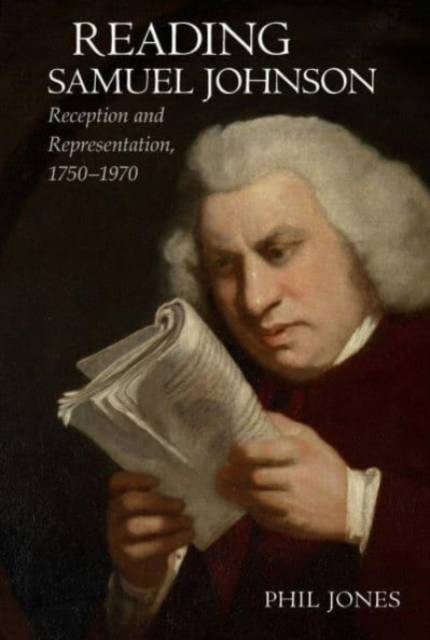
- Retrait gratuit dans votre magasin Club
- 7.000.000 titres dans notre catalogue
- Payer en toute sécurité
- Toujours un magasin près de chez vous
- Retrait gratuit dans votre magasin Club
- 7.000.0000 titres dans notre catalogue
- Payer en toute sécurité
- Toujours un magasin près de chez vous
Description
Reading Samuel Johnson examines how the eighteenth-century author, lexicographer, and wit, Samuel Johnson was later read and represented by writers between 1750 to 1970. The writers range from James Boswell and Jane Austen to Lord Byron and Samuel Beckett. The book focuses as much on these later writers as on Johnson himself. It also examines how Johnson sought to understand himself, and how later writers responded to or ignored Johnson's own self-understanding. This is the first detailed historical analysis of the way that later writers engaged with Samuel Johnson over an extended timeframe (of over 200 years).
The book sheds light on how writers bring their own unique creative energies, preoccupations and cultural affiliations to the reading experience. Writers find their own space, I argue, in part, through their responses to other authors. Reading Johnson has prompted writers, in turn, to write about him. Translating Johnson for contemporary audiences, authors have used very different means, including the writing of letters, essays, biographical representations, poetry, fiction and editorial practice. This has proved a dynamic process, both shedding new light on Johnson but also impacting writer's own imaginative practice. 'Reading Dr Johnson' has, therefore, always been a pre-eminently creative process.
Spécifications
Parties prenantes
- Auteur(s) :
- Editeur:
Contenu
- Nombre de pages :
- 320
- Langue:
- Anglais
- Collection :
Caractéristiques
- EAN:
- 9781638040774
- Date de parution :
- 19-12-23
- Format:
- Livre relié
- Format numérique:
- Genaaid
- Dimensions :
- 152 mm x 229 mm
- Poids :
- 639 g

Les avis
Nous publions uniquement les avis qui respectent les conditions requises. Consultez nos conditions pour les avis.






